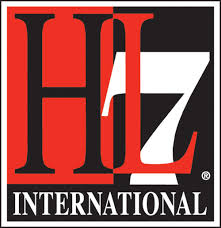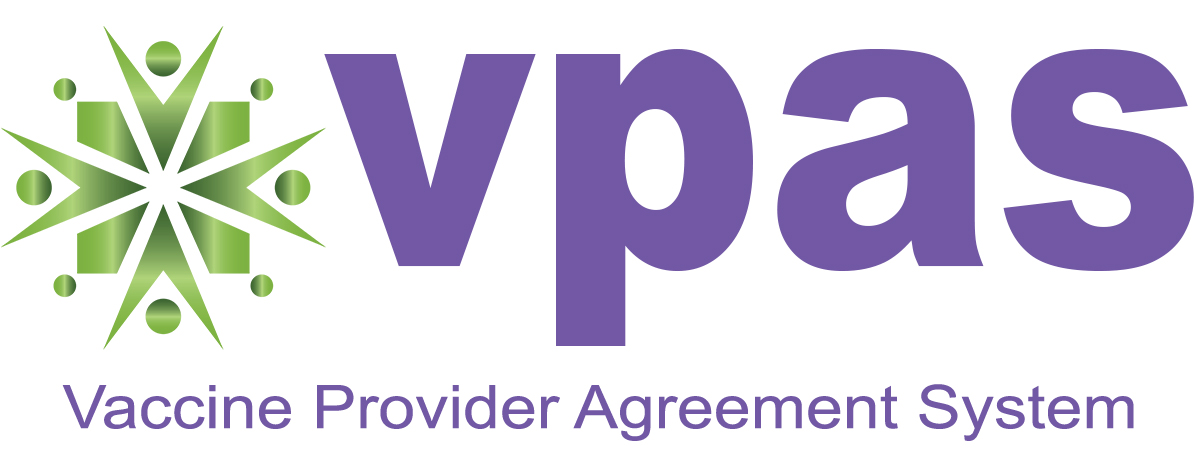health data interoperability
See the following -
3 Global Health IT Takeaways You Need to Know - Reflections from ONC 3rd Interoperability Forum
 The Office of the National Coordinator for Health IT (ONC) engages in several global health IT projects from a United States government perspective. ONC works with global counterparts to share experiences, and ensure alignment between global interoperability efforts and the United States' approaches to interoperability. This includes working through worldwide partnerships, bi-lateral and multi-lateral engagements, global networks, and memoranda of understanding. Through these engagements, we focus on advancing common health data standards for global interoperability, enhancing individuals' access to their data, progressing healthcare providers' experiences, and improving factors associated with transparency and competition.
The Office of the National Coordinator for Health IT (ONC) engages in several global health IT projects from a United States government perspective. ONC works with global counterparts to share experiences, and ensure alignment between global interoperability efforts and the United States' approaches to interoperability. This includes working through worldwide partnerships, bi-lateral and multi-lateral engagements, global networks, and memoranda of understanding. Through these engagements, we focus on advancing common health data standards for global interoperability, enhancing individuals' access to their data, progressing healthcare providers' experiences, and improving factors associated with transparency and competition.
- Login to post comments
Award Winning Firm J P Systems, Inc. Supports Veterans Health Administration (VHA) to Define COVID-19 Clinical Workflows
 [J P Systems] hit the ground running to serve the U.S. Department of Veterans Affairs (VA) by designing and documenting workflows for Veteran COVID-19 patient care. VA's Clinical Informatics and Data Management Office, CIDMO, in collaboration with the Emergency Management Coordination Cell (EMCC) and VHA health practitioners, have developed ten baseline COVID-19 clinical workflows. These workflows were created to establish a baseline for COVID-19 patient care from patient outreach through discharge and follow-up.
[J P Systems] hit the ground running to serve the U.S. Department of Veterans Affairs (VA) by designing and documenting workflows for Veteran COVID-19 patient care. VA's Clinical Informatics and Data Management Office, CIDMO, in collaboration with the Emergency Management Coordination Cell (EMCC) and VHA health practitioners, have developed ten baseline COVID-19 clinical workflows. These workflows were created to establish a baseline for COVID-19 patient care from patient outreach through discharge and follow-up.
- Login to post comments
HIMSS18 RosettaHealth Showcases Power of Community in Breaking Down Health Data Exchange Barriers at HIMSS
 RosettaHealth, an innovative and secure, big health data interoperability platform, today announced that it will be hosting a “community” of organizations making true strides in breaking down health data exchange barriers at HIMSS 2018. Joined by HASA, the community HIE for North, South and West Texas, IMAT Solutions, SocialClime and Shatzkin Systems in HIMSS Booth #11418, RosettaHealth will showcase how it takes a diverse cast of HIEs, vendors, and startups to make health data exchange truly work. “It’s no secret that breaking down the barriers of health data interoperability is a major challenge in the healthcare arena, which will surely be a major discussion topic at HIMSS 2018,” said Buff Colchagoff, CEO of RosettaHealth. “This HIMSS we’re demonstrating how ubiquitous health data exchange comes to life when you act as a community.”
RosettaHealth, an innovative and secure, big health data interoperability platform, today announced that it will be hosting a “community” of organizations making true strides in breaking down health data exchange barriers at HIMSS 2018. Joined by HASA, the community HIE for North, South and West Texas, IMAT Solutions, SocialClime and Shatzkin Systems in HIMSS Booth #11418, RosettaHealth will showcase how it takes a diverse cast of HIEs, vendors, and startups to make health data exchange truly work. “It’s no secret that breaking down the barriers of health data interoperability is a major challenge in the healthcare arena, which will surely be a major discussion topic at HIMSS 2018,” said Buff Colchagoff, CEO of RosettaHealth. “This HIMSS we’re demonstrating how ubiquitous health data exchange comes to life when you act as a community.”
- Login to post comments
HL7 FHIR Foundation Collaborates with Google Cloud Platform to Support FHIR Community
 Health Level Seven International (HL7), the global authority for interoperability in healthcare information technology with members in 55 countries, today announced that the HL7 FHIR Foundation is now working with Google to support HL7's Fast Healthcare Interoperability Resources (FHIR) standard and the FHIR community using Google Cloud Platform. Google Cloud Platform plans to work with the HL7 FHIR Foundation to advance the health data interoperability efforts of both organizations by providing the underlying cloud technology for the HL7 FHIR developer community. This collaboration will provide the FHIR community with resources to learn, create and accelerate real life FHIR implementations...
Health Level Seven International (HL7), the global authority for interoperability in healthcare information technology with members in 55 countries, today announced that the HL7 FHIR Foundation is now working with Google to support HL7's Fast Healthcare Interoperability Resources (FHIR) standard and the FHIR community using Google Cloud Platform. Google Cloud Platform plans to work with the HL7 FHIR Foundation to advance the health data interoperability efforts of both organizations by providing the underlying cloud technology for the HL7 FHIR developer community. This collaboration will provide the FHIR community with resources to learn, create and accelerate real life FHIR implementations...
- Login to post comments
HLN Releases Open Source Vaccine Provider Agreement System

HLN Consulting has just released a critical application to help complete the CDC's COVID-19 vaccination provider agreement requirements. HLN is a leading public health informatics consulting company that is focused on developing andsupporting robust open source solutions that address pressing public health requirements. HLN's application is designed to assist medical providers with a tool that can enhance and facilitate their tracking of critical vaccination information...
- Login to post comments
Is It Time to Purchase Your Own Quantum Computer?
 I want to talk about quantum computing – and why healthcare needs to looking ahead to it. Let’s start with this: for the low, low price of $5,000, you could have your very own quantum computer. Spin Q Technology, a Chinese company, has recently introduced its Spin Q, a less expensive, less powerful version of its Spin Q Gemini, which went for $50,000. Other quantum computers, such as those by Google, IBM, or D-Wave, have a few more zeroes in their price. Spin Q Technology has a clear goal in offering this version:We believe that low-cost portable quantum computer products will facilitate hands-on experience for teaching quantum computing at all levels, well-prepare younger generations of students and researchers for the future of quantum technologies."
I want to talk about quantum computing – and why healthcare needs to looking ahead to it. Let’s start with this: for the low, low price of $5,000, you could have your very own quantum computer. Spin Q Technology, a Chinese company, has recently introduced its Spin Q, a less expensive, less powerful version of its Spin Q Gemini, which went for $50,000. Other quantum computers, such as those by Google, IBM, or D-Wave, have a few more zeroes in their price. Spin Q Technology has a clear goal in offering this version:We believe that low-cost portable quantum computer products will facilitate hands-on experience for teaching quantum computing at all levels, well-prepare younger generations of students and researchers for the future of quantum technologies."
- Login to post comments
Is The 1.5+ Trillion Dollar HITECH Act a Failure?
 Hopefully, the public statements made by President Obama and Vice President Biden will lead to a public debate over the monumental problems that the HITECH Act and proprietary EHR vendors have caused the American people. While the press continues to report the figure of $35 billion as the cost of implementing EHRs, that figure does not tell the entire story. Perhaps the next step is to provide accountability and transparency. That would start with firm numbers regarding the real costs of EHR implementations forced on an unprepared healthcare system by the HITECH Act.
Hopefully, the public statements made by President Obama and Vice President Biden will lead to a public debate over the monumental problems that the HITECH Act and proprietary EHR vendors have caused the American people. While the press continues to report the figure of $35 billion as the cost of implementing EHRs, that figure does not tell the entire story. Perhaps the next step is to provide accountability and transparency. That would start with firm numbers regarding the real costs of EHR implementations forced on an unprepared healthcare system by the HITECH Act.
- The Future Is Open
- Login to post comments
J P Systems, Inc.
 J P Systems, Inc. provides Healthcare IT solutions to the Federal Government. We provide professional services for requirements analysis, HL7 standards development, data architecture, UML data modeling, IT policy consulting, IT strategy consulting, HIT stakeholder engagement and business analysis. We facilitate enterprise to enterprise data exchanges and plan for interoperability through data modeling and standardized clinical terminologies.
J P Systems, Inc. provides Healthcare IT solutions to the Federal Government. We provide professional services for requirements analysis, HL7 standards development, data architecture, UML data modeling, IT policy consulting, IT strategy consulting, HIT stakeholder engagement and business analysis. We facilitate enterprise to enterprise data exchanges and plan for interoperability through data modeling and standardized clinical terminologies.
- Login to post comments
Notes on the August Meeting of the HIT Standards Committee
The August HIT Standards Committee meeting focused on the work ahead to accelerate interoperability. It’s no longer about Meaningful Use, it’s about Meaningful healthcare information exchange. I offered my opinion about the work ahead. ONC is in the middle of regulation writing for Meaningful Use Stage 3, so the standards work of the next 10 weeks is not going to be incorporated into the NPRM. Read More »
- Login to post comments
Obama and Biden Blast EHR Vendors for Data Blocking
 As they are winding their terms in office, President Barack Obama and Vice President Joe Biden dropped a stink bomb on the health IT industry. Speaking at different events on Friday, January 9th, the President and Vice President both criticized proprietary electronic health record (EHR) vendors as the primary obstacle to the success of their administration’s health care strategy. This is the highest level acknowledgment so far of the serious impact that “lock-in” EHR software vendors are having on America’s medical infrastructure and the ability of physicians to provide medical care.
As they are winding their terms in office, President Barack Obama and Vice President Joe Biden dropped a stink bomb on the health IT industry. Speaking at different events on Friday, January 9th, the President and Vice President both criticized proprietary electronic health record (EHR) vendors as the primary obstacle to the success of their administration’s health care strategy. This is the highest level acknowledgment so far of the serious impact that “lock-in” EHR software vendors are having on America’s medical infrastructure and the ability of physicians to provide medical care.
ONC HTI-1 NPRM Through Public Health Eyes
 On April 18, 2023, the Office of the National Coordinator for Health Information Technology (ONC) published for comment the Health Data, Technology, and Interoperability: Certification Program Updates, Algorithm Transparency, and Information Sharing (HTI-1) Proposed Rule which proposes new provisions from the 21st Century Cures Act and makes updates to the ONC Health IT Certification Program (Certification Program). Weighing in at over 500 pages (the pre-release version), this proposed rule provides some refinements to existing ONC programs, corrections to others, and extensions to yet other provisions. ONC provides additional materials about this proposed rule, including fact sheets, blog posts, and records from topical webinars on their website. Note especially the information provided about a joint ONC-CDC sponsored informational webinar which took place on May 24, 2023, and is available for playback on the site.
On April 18, 2023, the Office of the National Coordinator for Health Information Technology (ONC) published for comment the Health Data, Technology, and Interoperability: Certification Program Updates, Algorithm Transparency, and Information Sharing (HTI-1) Proposed Rule which proposes new provisions from the 21st Century Cures Act and makes updates to the ONC Health IT Certification Program (Certification Program). Weighing in at over 500 pages (the pre-release version), this proposed rule provides some refinements to existing ONC programs, corrections to others, and extensions to yet other provisions. ONC provides additional materials about this proposed rule, including fact sheets, blog posts, and records from topical webinars on their website. Note especially the information provided about a joint ONC-CDC sponsored informational webinar which took place on May 24, 2023, and is available for playback on the site.
- Login to post comments
ONC Playbook Breaks Down Health IT, EHR Tasks and Buzzwords
 The healthcare industry seems to be largely driven by buzzwords: quick and snappy phrases that reduce complex, difficult, expensive and often confusing initiatives into keywords that may not mean much to the uninitiated. From big data and population health management to electronic health records and value-based care, these short and sweet terms have come to define the new direction of one of the nation’s largest sectors...
The healthcare industry seems to be largely driven by buzzwords: quick and snappy phrases that reduce complex, difficult, expensive and often confusing initiatives into keywords that may not mean much to the uninitiated. From big data and population health management to electronic health records and value-based care, these short and sweet terms have come to define the new direction of one of the nation’s largest sectors...
- Login to post comments
Peter Levin, Co-Founder & CEO, Amida Technology Solutions, To Deliver Keynote At Connected Health Conference, Focusing On Health Data Interoperability
 The Personal Connected Health Alliance (PCHA) today announced that Peter L. Levin, PhD, co-founder and CEO, Amida Technology Solutions, will deliver a keynote presentation at the Connected Health Conference on the morning of Tuesday December 13, 2016. Levin's keynote will focus on data interoperability and patient access to their personal health information. "From simple ideas like parental access to immunization records, to life-saving access to clinical trials registries, control of our personal health information is critical," said Richard Scarfo, Vice President, PCHA, and Director of the Connected Health Conference. "Peter is on the vanguard of helping companies collect, aggregate reconcile and transform their health information. His insights on secure, reliable access to patient data will be of great interest to our audience."...
The Personal Connected Health Alliance (PCHA) today announced that Peter L. Levin, PhD, co-founder and CEO, Amida Technology Solutions, will deliver a keynote presentation at the Connected Health Conference on the morning of Tuesday December 13, 2016. Levin's keynote will focus on data interoperability and patient access to their personal health information. "From simple ideas like parental access to immunization records, to life-saving access to clinical trials registries, control of our personal health information is critical," said Richard Scarfo, Vice President, PCHA, and Director of the Connected Health Conference. "Peter is on the vanguard of helping companies collect, aggregate reconcile and transform their health information. His insights on secure, reliable access to patient data will be of great interest to our audience."...
- Login to post comments
Taking Stock: Interoperability and National Health IT Week
During a two-hour panel discussion hosted by ONC this week, yours truly provided views on the current state of interoperability. In celebration of National Health IT Week, panelists were asked to provide their thoughts on the biggest advancements made in interoperability, ways that government and industry should work together, and concerns about future challenges...
- Login to post comments
The Postmodern EHR: The Data Layer
 This second approach entails defining a data layer, which is the most important aspect of the Postmodern EHR architecture from my previous post. Why is this the most important layer? Most healthcare organizations are beginning to realize that their data is more valuable than their applications. Data has become a key asset, since good data is key to improving outcomes, managing chronic disease and enabling population health management. And it needs to be managed for the lifetime of the patient. Which application is going to last that long? What happens to health data when we switch applications?
This second approach entails defining a data layer, which is the most important aspect of the Postmodern EHR architecture from my previous post. Why is this the most important layer? Most healthcare organizations are beginning to realize that their data is more valuable than their applications. Data has become a key asset, since good data is key to improving outcomes, managing chronic disease and enabling population health management. And it needs to be managed for the lifetime of the patient. Which application is going to last that long? What happens to health data when we switch applications?
- Login to post comments